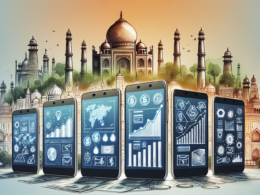Artificial Intelligence (AI) is no longer just a sci-fi concept—it’s part of our daily lives, transforming everything from how we shop online to how businesses operate. With rapid advancements in AI, it’s no surprise that a big question has emerged: Will AI replace jobs in 2025?
The answer is not as simple as “yes” or “no.” In this blog post, we’ll break down the myths and the reality about AI and the future of work in 2025.
Myth #1: AI Is Here to Steal All Our Jobs
Let’s start with the most common fear: AI will take over all human jobs. This myth has been around for years, stoked by headlines and Hollywood movies.
The Reality
Yes, AI is automating some tasks—but it’s also creating new job opportunities. According to a 2023 report by the World Economic Forum, AI is expected to displace about 85 million jobs but also create 97 million new ones by 2025. That's a net gain in employment!
AI is especially good at repetitive, data-heavy tasks. Jobs that involve creativity, emotional intelligence, problem-solving, and critical thinking are still very much in human hands.
Example:
Jobs likely to evolve or change:
- Data entry clerks
- Telemarketers
- Routine bookkeeping
Jobs likely to grow:
- AI and machine learning specialists
- Digital marketing professionals
- Healthcare workers who use AI tools
Myth #2: Only Tech Jobs Are Safe
Another common belief is that only people in tech roles will survive the AI wave.
The Reality
AI impacts more than just the tech sector. It’s being used in healthcare, finance, education, agriculture, customer service, and more. But that doesn’t mean everyone needs to become a coder.
Instead, roles that blend human expertise with AI tools are in high demand. Upskilling and reskilling are the keys to staying relevant.
Skills that will be in demand in 2025:
- Digital literacy
- Adaptability and flexibility
- Critical thinking
- Communication and collaboration
- Data interpretation
Even non-tech roles can benefit from understanding how AI works. For example, teachers can use AI-powered tools to personalize education, and farmers can use AI for crop monitoring.
Myth #3: AI Doesn’t Need Human Oversight
Some think that once an AI system is up and running, it can manage itself.
The Reality
AI needs a lot of human oversight—from designing and training the algorithms to ensuring ethical use and interpreting results.
AI isn’t perfect. It can make biased decisions or fail to understand context. That’s where humans come in, to guide and monitor AI systems responsibly.
Roles that will continue to require human judgment:
- AI ethicists
- Project managers
- User experience designers
- Policy makers
- Customer relationship managers
Where AI Is Making a Positive Impact
AI is not just replacing tasks—it’s also enhancing productivity and making work more meaningful by taking over mundane and repetitive tasks.
Positive examples of AI in the workplace:
- Automating data-heavy processes like invoice management
- Chatbots providing 24/7 customer support
- AI-powered tools helping doctors diagnose diseases faster
- Smart algorithms assisting marketers in creating targeted content
These advancements are allowing professionals to focus on creative, strategic, and relationship-driven tasks.
How to Future-Proof Your Career in 2025
Rather than fearing AI, we should learn how to work alongside it. Embracing AI as a tool rather than a threat is the first step toward future-proofing your career.
Actionable Steps:
- Stay curious and open to change
- Take online courses or attend workshops on AI and digital tools
- Focus on building soft skills like empathy, communication, and collaboration
- Explore how AI can be used in your current role to improve efficiency
- Consider reskilling into high-demand areas like data science, digital marketing, or cybersecurity
Conclusion: The Future of Work Is Human + AI
The truth is, AI isn’t replacing jobs—it’s transforming them. By 2025, we’ll see more collaboration between humans and machines than ever before. The key is to stay adaptable, continuous in learning, and proactive in developing new skills.
Yes, the job landscape is changing, but change also brings opportunity.
Ready to take a step toward the future?
Start by identifying one skill you can improve today—whether it’s learning how AI works in your industry or sharpening your problem-solving skills. Your future career self will thank you!
Want to learn more about AI in the workforce? Subscribe to our newsletter for weekly insights and tips to stay ahead in the age of AI!







